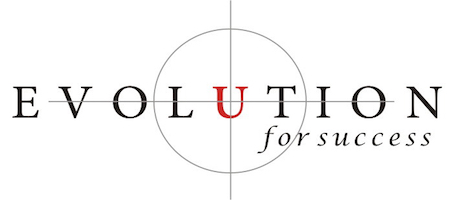In a previous post, I talked about the acronym F.O.C.U.S.S. and how a person can create greater levels of purpose, self-confidence, and direction. Today, I’m going to approach the concept of “focus” from the perspective of one of the greatest coaches in basketball history, John Wooden.
“In 1948, I began coaching basketball at UCLA. Each hour of practice we worked very hard. Each day we worked very hard. Each week we worked very hard. Each season we worked very hard. For fourteen years we worked very hard and didn’t win a national championship. However, a national championship was won in the fifteenth year. Another in the sixteenth. And eight more in the following ten years.” ~JW
My question is this, “Did the teams develop to a point where they could finally win a national championship or did Coach Wooden develop himself into a national championship coach?”
First Step: Be clear who you are and what Skill you choose to pursue excellence in (internal focus).
If you are going to become a master at a skill or craft, make sure it is one that you love and will emotionally support you for the next 20 years. Then, work to be the best!
To support this assertion another quote, “I am not what I ought to be, not what I want to be, not what I am going to be, but thankful that I am not what I used to be.” ~JW Focus on being your best now in this moment, every moment!
“For an athlete to function properly, he must be intent. There has to be a definite purpose and goal if you are to progress. If you are not intent about what you are doing, you aren’t able to resist the temptation to do something else that might be more fun at the moment.” ~JW
Second Step: You must set goals that align with the expression of who you want to become and the skill you are choosing to master.
Set BIG, HUGE GOALS (external)!
For example, I chose a skill set of running many years ago. After thousands of miles of mastery, there was room for growth to always set the bar higher in terms of external goals: a 10K, half marathon, marathon, Goofy Challenge, 50-Miler, 100K Ultra and the pinnacle…100-Mile Ultra. Those goals took 20+ years of focus. As I took yoga along the way to keep flexible and train, I didn’t set a goal to become a yoga guru.
Big Goals provide the impetus to learn to perfect yourself in the execution of becoming more. They create the pressure to become meticulous because every detail counts. A hot spot on your foot in a 10K or half marathon is not big deal, on a marathon it becomes a little more important but during an ultra-marathon it means the difference between success and epic failure. Large goals are critical because they provide motivation to be diligent, prudent, and sustain a heightened level of awareness; internal and external. That creates focus.
“Adversity is the state in which man most easily becomes acquainted with himself, being especially free of admirers then.” ~JW
Third Step: Large goals create large obstacles to overcome.
This scares other people away from you so you have more time and energy to focus on your pursuits and not be presented with their problems.
How often during the day are we interrupted, distracted and presented with other people’s problems and life issues? People tend to conspire with others who will give them solace, empathy, and commiserate with them on their problems. The more a person commiserates with another, the more they keep coming back for more commiseration! If a heavy set person starts telling you how bad they feel, most people think it is OK to say, “I’m sorry, you know, it’s not really your fault. After all its genetics, thyroid issues, etc.” What happens when they get that response? They keep coming back!
Granted it’s not polite to say to them, “then get off your fat buns and do something about it.” BUT, if you are setting a high goal of health for yourself, that person will naturally shy away from you. They know intuitively, as they see you pack your bag for a lunchtime workout, they won’t get much sympathy. You scare them away by setting higher standards.
BIG Goals scare people away because they suffer internally by comparison.
This cuts down in interruptions, distractions, and people telling you their problems. FOCUS comes from setting a higher standard than your peers. An added benefit is that the only people who will interrupt you are the people who have high standards and the exchanges will be more in the form of support, encouragement and sharing of tips that help you refine and master your craft. These can be good because they actually boost your energy, efficiency and the time spent for the interruption is time saved with what is learned by sharing.
Welcome the adversity and feelings of “being alone” in your singular pursuit. This creates focus. Here’s a supportive quote.
“When everyone is thinking the same, no one is thinking.” ~JW
Let’s recap these three steps:
1. Be clear on who you are and what skill you want to master (internal mindset)
2. Set Goals in that skillset that are HUGE, stretch yourself as high and far as you can go!
3. Get comfortable with scaring other people away and being alone…set a higher standard. Your only interruptions will be from others with high goals. Those interruptions will be fewer but very supportive!
“The road to real achievement is usually bumpy and long, but you do not give up. You may have setbacks. You may have to start over. You may have to change your methods. You may have to go around, or over, or under. You may have to back up and get another start. But you do not quit. You stay the course.” ~JW
To your continued success,
James, Executive Business Coach
Learn more about Coach John Wooden here: www.coachwooden.com



